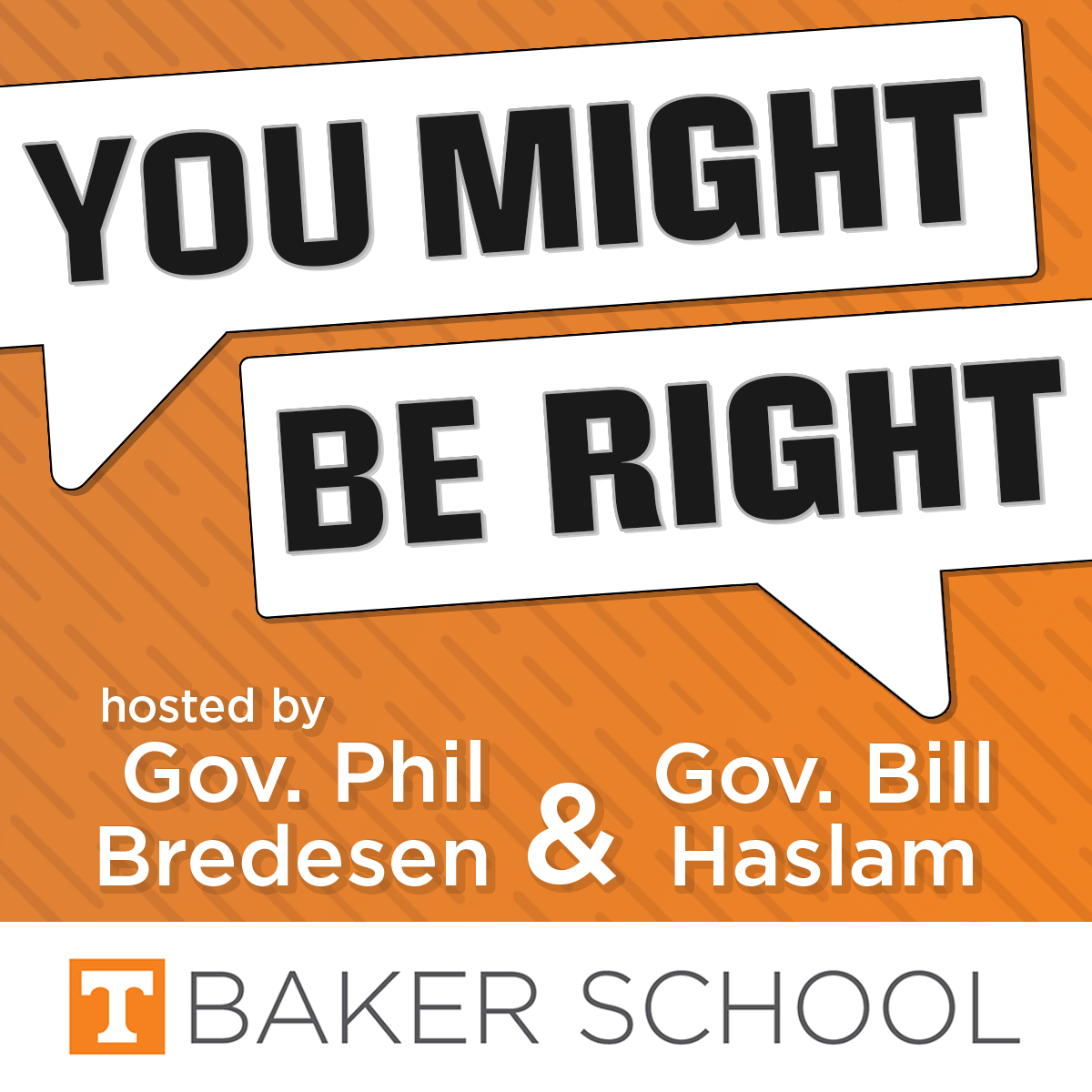Is Public Education in Crisis?
Is public education in crisis? In recent years, our schools have faced unprecedented challenges from the pandemic and teacher shortages to debates over curriculum and student mental health. Test scores are down, and US students are falling behind their international peers. In this final episode of Season Six, our hosts, former Tennessee Governors Phil Bredesen and Bill Haslam, and their guests discuss the evolving education landscape. What role should state and federal governments play in education? How can we make education more of a policy priority? And what reforms are needed to improve student outcomes?
In this episode, the governors are joined by three guests: Jeb Bush, former Governor of Florida; John White, former Louisiana State Superintendent of Education; and Rahm Emanuel, former Ambassador to Japan, Mayor of Chicago, White House Chief of Staff, and Congressman.
Subscribe and follow You Might be Right wherever you get your audio content – including Apple Podcasts and Spotify – to never miss an episode, or sign up for our email list to receive new episodes straight to your inbox each week here.
“If you don’t measure, you don’t care”
Governor Bush, the founder and chair of ExcelnEd, an education reform nonprofit, began the conversation by offering his perspective on how we went from “a rising tide because of No Child Left Behind” to “stagnation or sadly decline” in the last decade on education outcomes.
What changed? Bush pointed to two factors: education has become more partisan, and we’ve moved away from accountability. “Even today there are states that are eliminating their high school graduation tests,” he said.
“The simple fact is if you don’t measure, you don’t care,” he added. “And if you have the proper kind of a measurement and real accountability, you focus everybody’s attention on the needs of students and you can get results.”
“An existential matter”
White, who today serves as CEO of Great Minds, a nonprofit curriculum publisher and professional learning provider, noted it wasn’t all bad news. He pointed to several states – including Florida, Tennessee, Louisiana, and Mississippi – as “bright spots” in part because they have all “put accountability for results at the center of their program… programs look different, but accountability doesn’t change.”
What should the federal government’s role in education be? White noted that it plays an important role in civil rights, and in creating scale and uniformity across states. Getting rid of the U.S. Department of Education without an alternative plan in place would put that at risk, he said.
“If you’re just saying to a bunch of agencies that have failed… ‘Now you’re on your own,’… I don’t see what that gets us,” White said. “I have no problem with restructuring the Department of Education, giving it a new mission…but how is that going to actually work for states that clearly aren’t getting it done right now?”
Ultimately, education is “an existential matter,” he noted. “We have to be interested in the welfare of all kids for the sake of our society…This country survives on a knowledge economy. You’re talking about a world where we’re going to have fewer immigrants and a less educated population. I don’t see how that society survives in the long run.”
“You can’t replace time”
The episode wrapped up with a bonus conversation with Emanuel, who was returning to You Might be Right (listen to his previous episode, on foreign alliances, here) to discuss education.
What would he do to reverse the decline in student outcomes? Emanuel outlined a series of steps, from addressing chronic absenteeism to early interventions, tutoring, and setting minimum standard for reading, match, and writing, on both the quantity of time and the instruction. “Kids can’t learn if they’re not in school,” he said. “You can’t replace time.”
At the national level, he called for a presidential-level convening of governors and education leaders to develop a blueprint. “To me, national leadership is about saying, time out, everybody stop…We’ve got a national crisis,” Emanuel said.
“What are the five things every school district has to do? I want a report card on what you’ve done to implement them. And I would go so far, if the president wants to expand the authority of the Department of Education, your national money from the feds will be tied to seeing you implement these five things statewide,” he added. “I would be that strong about it.”
Subscribe and follow You Might be Right wherever you get your audio content – including Apple Podcasts and Spotify – to never miss an episode, or sign up for our email list to receive new episodes straight to your inbox each week here.

Join the conversation on Twitter by following @UTBakerSchool, @PhilBredesen, and @BillHaslam.


